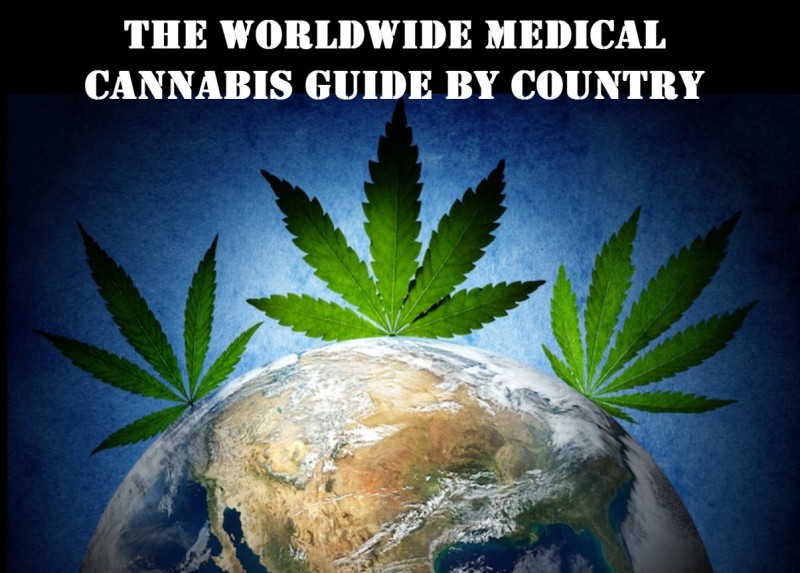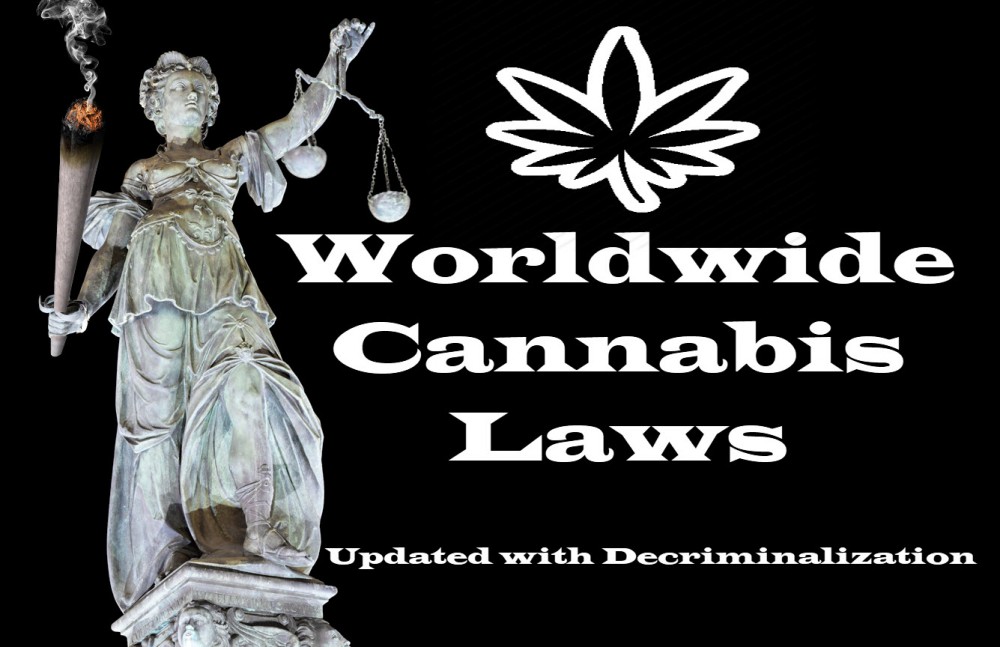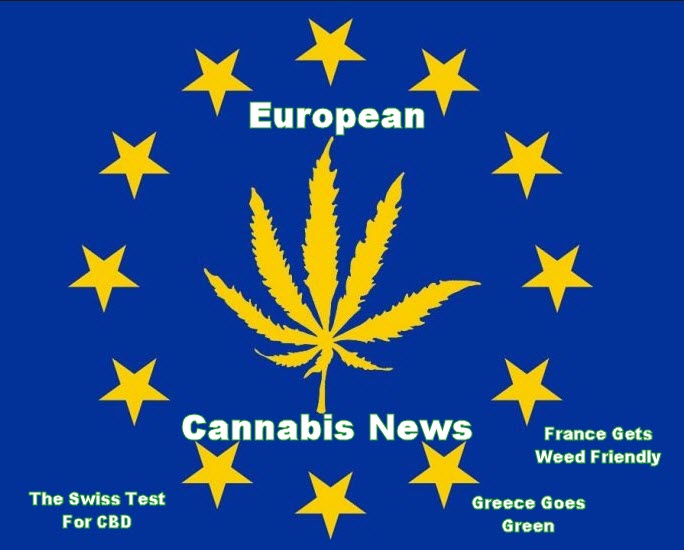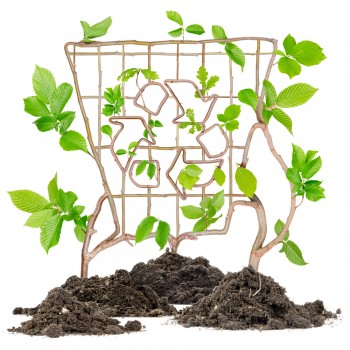Legality of Medical Cannabis by Country
The Worldwide Medical Marijuana Guide By Country from CannabisNet on Vimeo.
Gradually, over the last couple of decades, global attitudes towards cannabis have begun to shift. The plant remains classified as a psychotropic drug by the United Nations and remains illegal at the federal level in the United States, perhaps the most visible country currently moving towards more relaxed laws. As such, it has been a long and hard-fought battle to get the medical community, and world governments, to begrudgingly accept that cannabis is, in fact, a valid medicine for a range of different conditions.
The reasons, political, scientific, and historical, for the reluctance to accept cannabis in these terms are very complex. Most of the world is now moving towards decriminalisation, but this doesn’t necessarily mean that cannabis will be legalised and openly sold. Instead, it means that those found to be in possession of cannabis won’t face any criminal action. The debate about whether the war on drugs has produced any positive results, or if it has instead empowered criminals and penalised the most vulnerable members of society, who are more susceptible to drug and addiction issues, continues to rage on.
With all that said, what follows is a breakdown of cannabis’s legal status across the world, organised by country. For the purposes of brevity, and to make this list easier to use and navigate, we have omitted countries where there is no legal usage of cannabis and only included countries which have some degree of medicinal usage.
Note that the United States has been omitted as federally cannabis remains illegal.
Argentina
Argentina, like much of south America, has decided to take the step of decriminalising possession for small, personal amounts. Medicinal cannabis is available in Chubut and Santa Fe and is expected to be available widely throughout the country by the end of the year.
Australia
Australia has made cannabis legal for both scientific research, and for medicinal usage, at the federal level. Individual Australian states are able to decide on the laws governing recreational use themselves, as a result, cannabis has been decriminalised in the Northern Territory, South Australia, the Australian Capital Territory, and Victoria.
For more information on Australia’s cannabis laws, check out icannabis.com.au. It is a fantastic resource! It is “...helping [to] transform and develop an industry which is desperately needed by so many,” says Gerald from icannabis.com.au in Australia.
Austria
As of January of 2016, Austria has decriminalised possession for personal use. It has been available for medical purposes for some time before then, beginning in 2008.
Belgium
Belgium has legalised the possession of up to three grams of cannabis, and the possession of a single plant within the user’s home. However, Belgium is an outlier in that, while cannabis is freely and legally available, it is not prescribed by doctors or dispensed by pharmacies. Some products, such as Marinol, which contain cannabis extracts, are prescribed, however.
Belize
Cannabis use in Belize has always been common and the laws have rarely been enforced. Possession of more than 10 grams of cannabis is still illegal but amounts up to this are decriminalised.
Bolivia
Bolivia is one of the many south American nations that has experienced first-hand the devastating effects of powerful drug cartels and the fight against them. The country has decriminalised amounts of cannabis below 50 grams, making it one of the most generous personal allowances in the world.
Brazil
Possession of drugs such as cannabis for personal use has been decriminalised in Brazil. Instead, those caught will receive a warning, community service orders, or have to attend a brief course. Medical cannabis is available on prescription for a variety of conditions.
Canada
Canada is moving towards total decriminalisation, but while the plant currently remains illegal, it is widely accepted socially and culturally. Perhaps unsurprisingly for a country so willing to embrace the place of cannabis in its culture, medical usage of cannabis is relatively common in Canada.
Chile
Chile decriminalised personal and private cannabis use in 2005. Individuals have been allowed to cultivate their own for medicinal purposes, provided they have authorisation from the Chilean Agriculture Service (SAG) since 2014. The following year, 2015, the supreme court ruled that sale of cannabis and related medications is allowed in pharmacies or those with a prescription.
Colombia
Colombia has legalized the possession of small amounts for personal use (up to 22 grams). Those with a prescription are exempt and may possess as much as they desire. Similarly, the cultivation of up to 20 plants at home is legal, with no limit for medical or scientific users.
Costa Rica
Cannabis is technically illegal, but its usage is widespread and tolerated. It is not prescribed by doctors but its widely used ‘off-label’.
Croatia
Croatia has decriminalised possession of small personal amounts; it is available medically for a limited range of conditions.
Czech Republic
The medical use of cannabis has been legal in the Czech Republic since 2013.
Denmark
Denmark allows for the possession and use of medical cannabis with a valid prescription.
Finland
Medical usage of cannabis requires a special licence, but has been possible since 2006 with a couple of hundred licences issued every year.
Germany
German patients with an appropriate prescription have been able to purchase products from pharmacies since 2015. Germany is expected to expand the number of people who are able to access medical cannabis over the next year.
Israel
Israel legalised medicinal use of cannabis, with a valid prescription, in the early 1990s. Last year, Israel announced plans for full decriminalisation for personal use.
Italy
Italy allows possession for medicinal usage, with a valid certificate. Cultivation is very strictly regulated and even small amounts for personal use can result in serious punishments.
Luxembourg
Medicinal cannabis use is allowed in Luxembourg; personal amounts of the drug have also been decriminalised.
Macedonia
Macedonia issues a small number of cannabis licences each year, but the plant remains illegal.
Mexico
Mexico have decriminalised personal use and issue licences for medical and scientific uses.
Poland
Poland has tightened up the punishments for possession of large amounts of cannabis but has decriminalised personal amounts and allows for medical usage on prescription.
Romania
Cannabis remains illegal, but the ban is widely ignored. A small number of prescriptions are issued every year.
Spain
Spain has decriminalised cannabis and it is available from a number of licenced premises across the country.
Turkey
Turkey allows medicinal use but also punishes illicit possession harshly.
This list is not exhaustive, but the most prominent nations with medical cannabis usage have been included.
OTHER STORIES YOU MAY ENJOY...
WORLDWIDE CANNABIS LAWS UPDATED, CLICK HERE
OR..
EUROPEAN CANNABIS NEWS, CLICK HERE.









